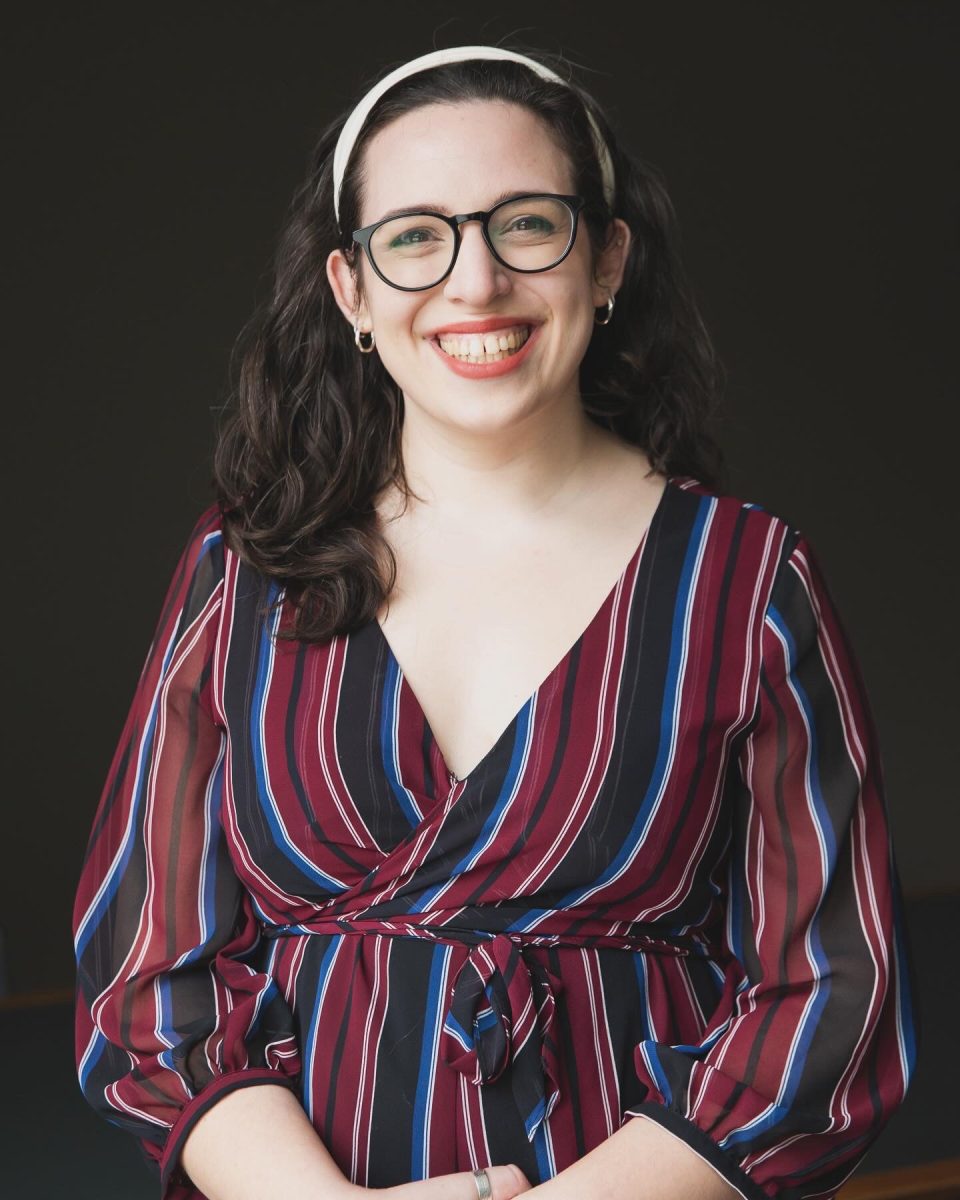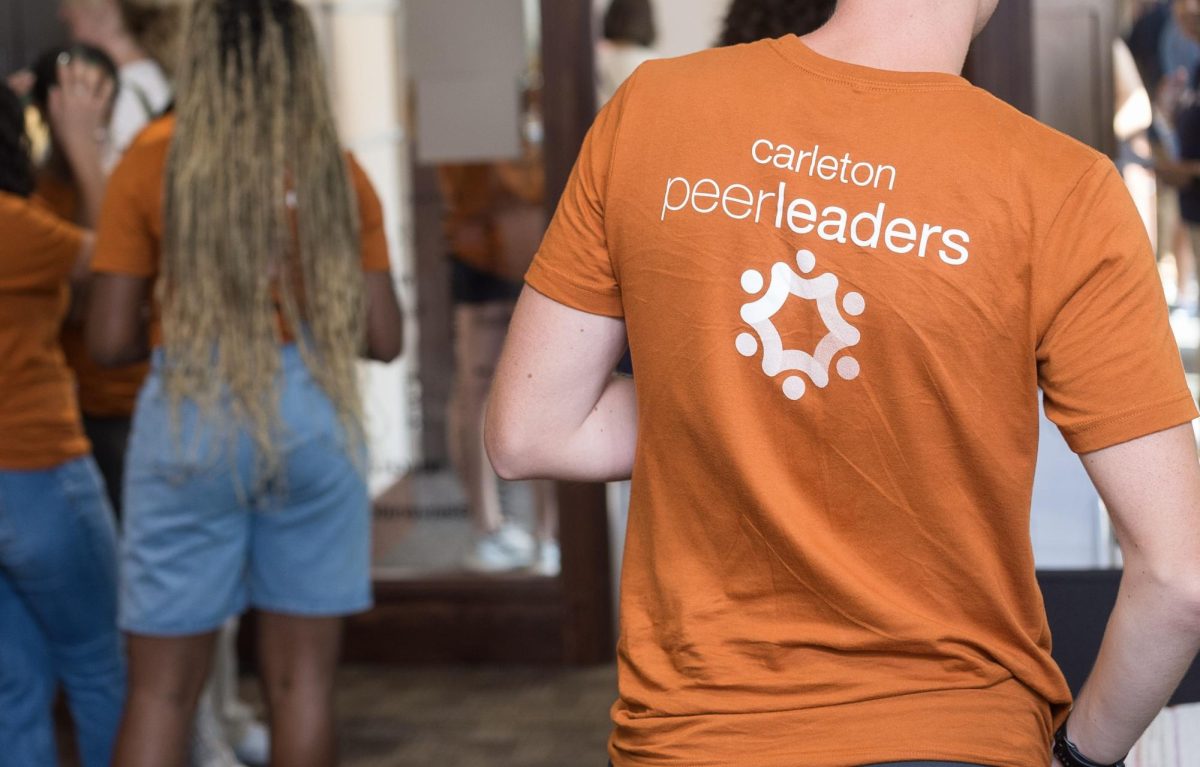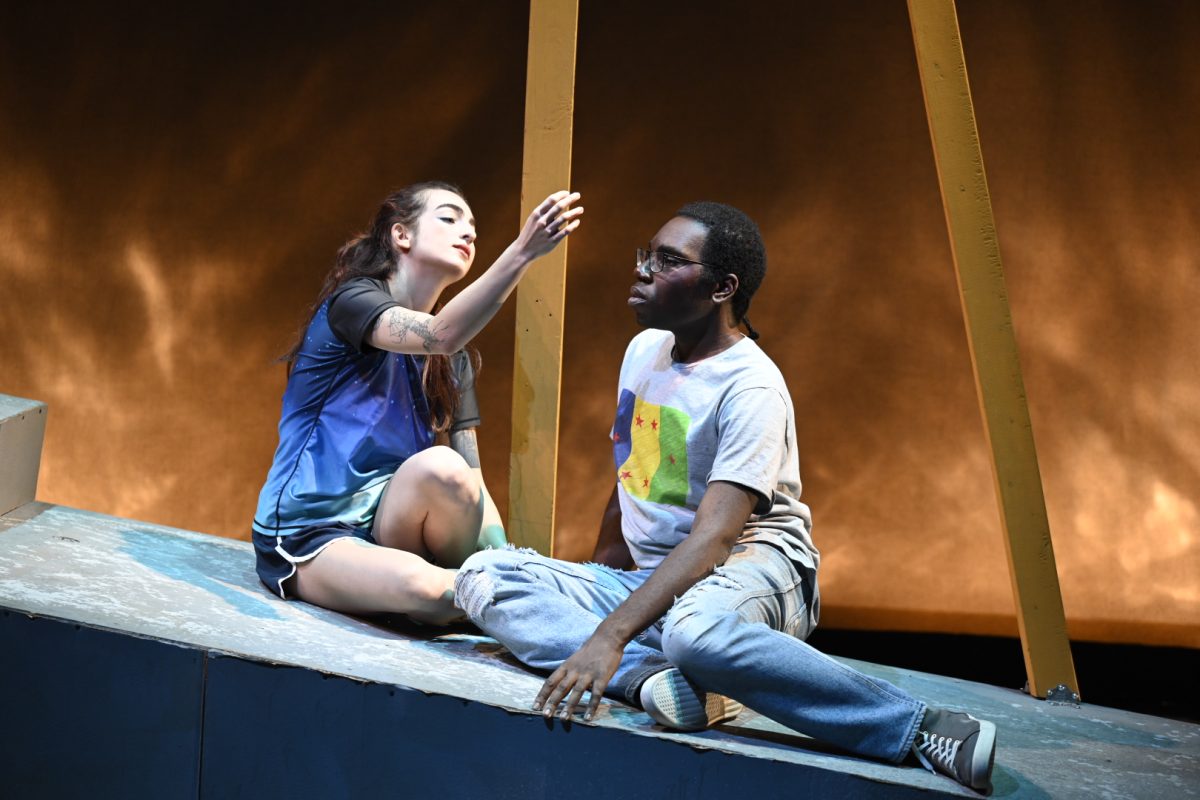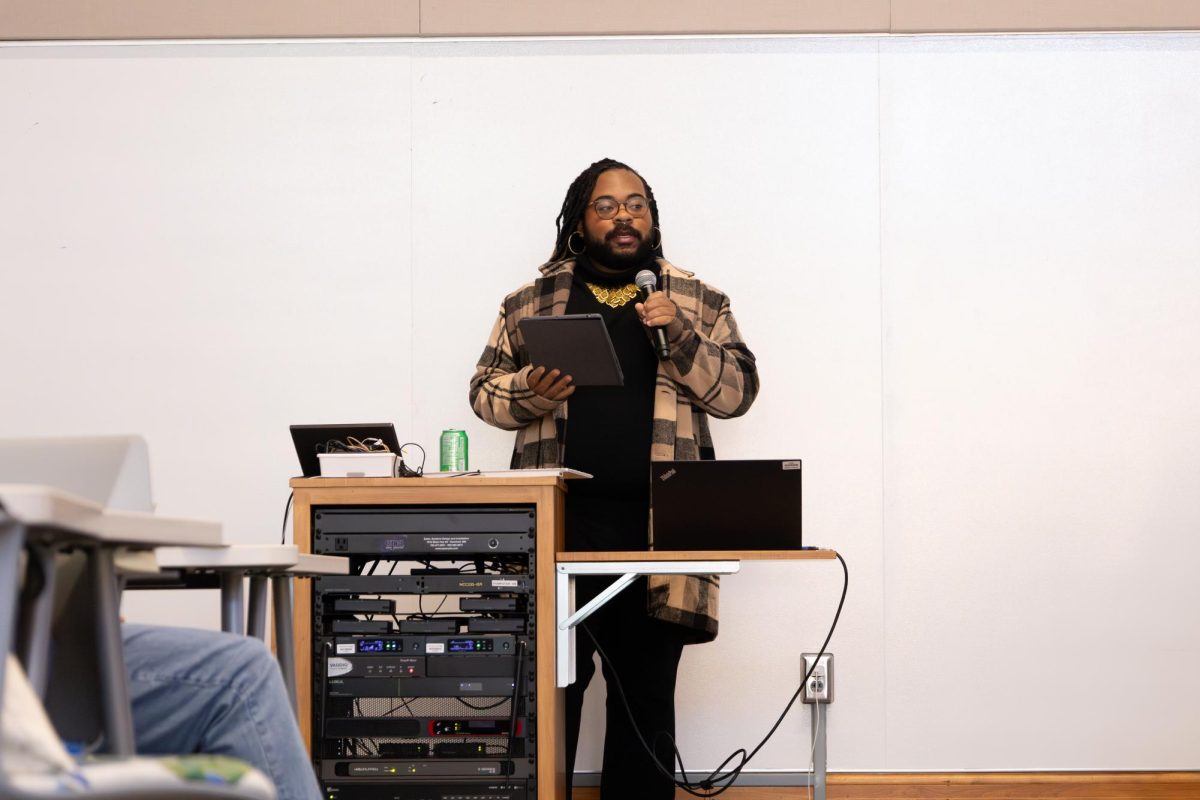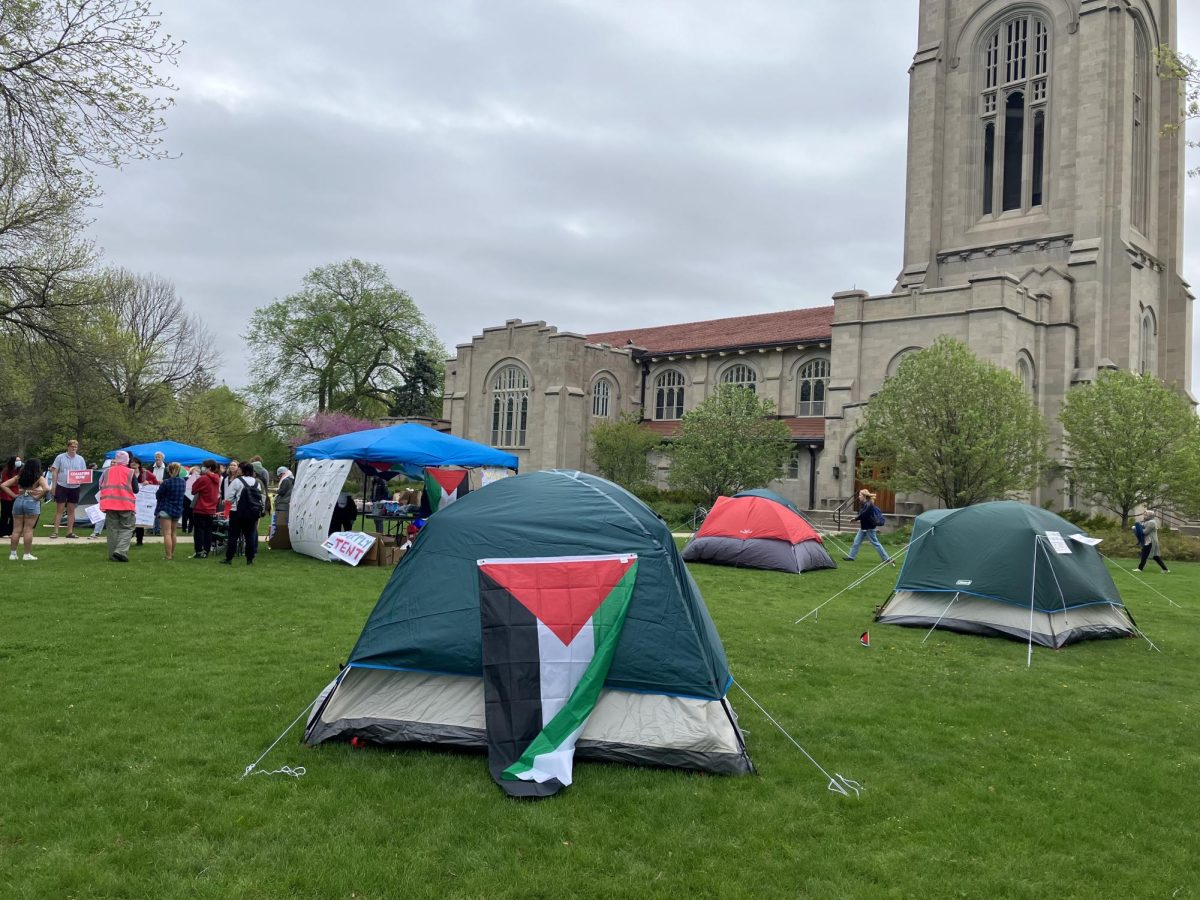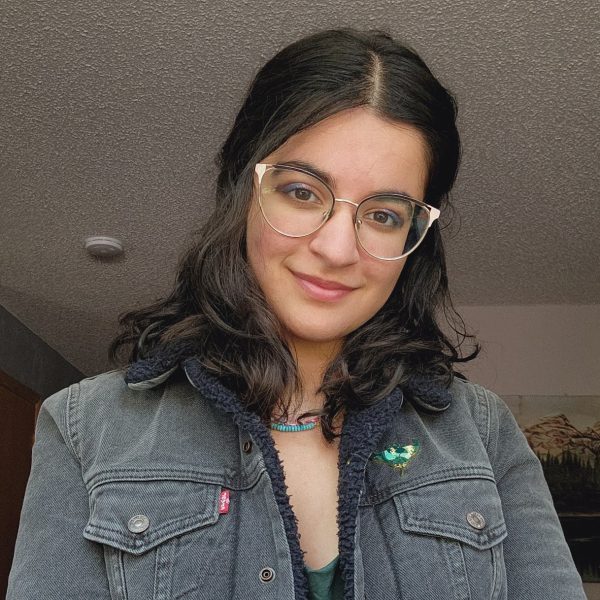When asked about the kind of person needed to fill the role of chaplain for Jewish and Interfaith Life, College Chaplain Schuyler Vogel ’07 said that he hoped to find somebody who would be able to get along with students, staff and families; somebody “grounded in Jewish thought” and who can “hold all the complexities of this moment.”
Rav Michaela Brown, he says, “can navigate those complexities well.” Brown, the new associate chaplain for Jewish and Interfaith Life, comes to Carleton as an ordained rabbi from Massachusetts. After attending rabbinical school for five years at Hebrew College, Brown had “the sense that I wanted to work with students rather than at a synagogue.”
Brown, who has prior experience working with high school and college students, said that there’s a “level of open-mindedness of young people” about beliefs and values, especially this being the first time that many are out of their parents’ homes. They’ve “started thinking about the world, systems of justice and society in a critical way,” she said.
On coming to Carleton, Brown said, “I don’t have an agenda for what the religious experience looks like.” Her main goal is to get to know the Jewish students on campus and their experiences. By Jewish students, Brown emphasized the different cultural aspects as well as the religious aspects that students may have. Regardless of the differences and array of experiences Jewish students may have, Brown wants to support them through the college experience and noted that this can be a “difficult transitional time.”
Brown acknowledges the differences that students are coming in with, and that they may have questions about how they will relate to Shabbat – the weekly Jewish day of rest – religious texts and other Jewish students.
Her role as a chaplain is similar to that of the other associate chaplains, in that she is a resource for students, staff and faculty alike to confide in and lean on for support. For students with developing curiosity about Judaism, Brown wants to help guide them. “In my own experience, the more questions I asked, the more I was able to connect with the elements [of Judaism] I wanted to,” Brown said.
One thing that Brown mentioned is that she is “comforted by the ethos of Carleton” that being a “tight-knit community across differences.” That being said, she wants to delve into questions like “what does it mean to be aware of being Jewish, and how does that look on campus?”
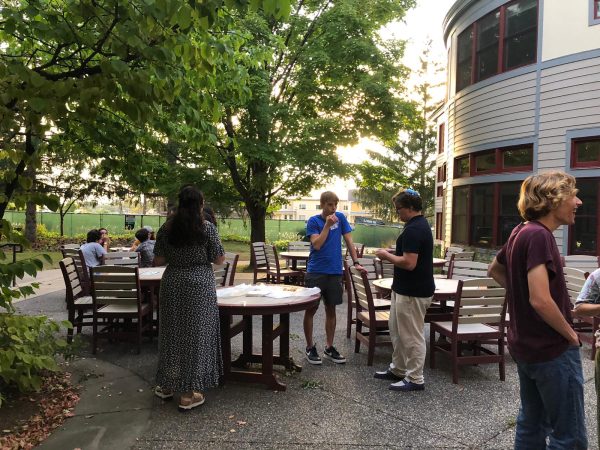
For example, the past Friday’s student involvement fair was held during Shabbat, leaving leaders of the Jewish student organizations — Jewish Students of Carleton (JSC) and Jewish On Our Own Terms (JOOOT)—in a difficult position.
Another point that both Brown and Vogel have drawn attention to is how to navigate the current political climate. That being the Israel-Palestine conflict. Vogel emphasized “how important having both roles on campus”: the roles that Rav. Michaela Brown and Associate Chaplain for Muslim and Interfaith Life, Ailya Vajid, have.
“[Vajid and Brown] occupy roles that no one else has on campus,” said Vogel, acting as “stewards, interpreters, and guides for and within [Islamic and Judaic] traditions.” He described their work on campus as “so vital” and would argue that because of these roles, Carleton has navigated the current climate “better than other campuses.”
For Brown, her focus is to center conversations around relationships across campus. “My sense is that as people are navigating, they are trying to do that,” she said. “College bursts people’s bubbles—their life experiences and opinions.” Brown says that she hopes to be “a sounding board as they’re processing that” and acknowledges the myriad of opinions and experiences that Jewish students may be coming from.
She also wants to bring clarity to Carleton about what antisemitism looks like as it is on the rise. Brown said, “I don’t want to discourage or silence activism,” but to encourage conversations.
Of her experience thus far in the chapel, Brown has spoken about working on an interfaith team with the other chaplains. “We work to do our best in these challenging times.” She is excited to continue this kind of collaborative work at Carleton. “There’s a level of intellectual curiosity that I appreciate, and that feels unpretentious to me,” she said. To her, the community appears “committed to thinking about the world around them in a way I resonate with.”
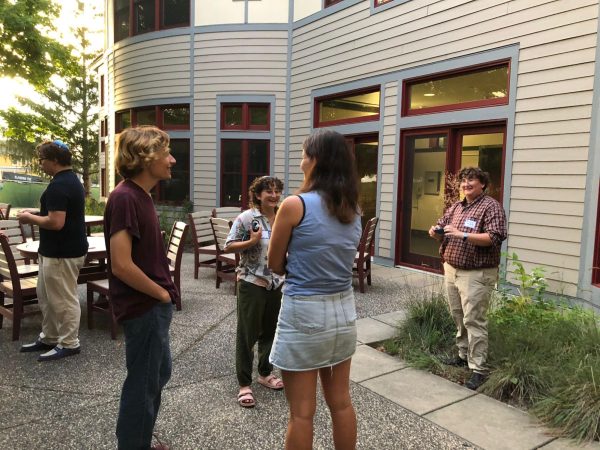
“I’m excited to collaborate with others for this job,” she said. Some examples she mentioned are listening to “student voices on developing programs, mentoring them as leaders, and meeting with people across disciplines” such as the Gender and Sexuality Center (GSC), the President’s Office and the Division of Inclusion, Equity and Community (IEC).
Vogel spoke about some of this collaboration that he witnessed during new student week (NSW). This past NSW Shabbat marked the first since October 7th — the anniversary of the beginning of the Israel-Hamas War in Gaza — and since the formation of JOOOT, a specifically anti-Zionist Jewish student organization.
“Suddenly there were new complications,” said Vogel, “when before there was just one group [JSC].” However, during this Shabbat, Vogel recalled the ways that leaders of both JSC, JOOOT and Rav. Michaela “worked hard to make the community open for Jewish folks.” He remarked it as “a great moment.” This NSW Shabbat was a crucial collaborative moment, as Vogel emphasized that while in many ways, a chaplain’s role is student-oriented, it is just as much about interacting with and navigating the concerns of parents, alumni, donors and the wider campus community.










